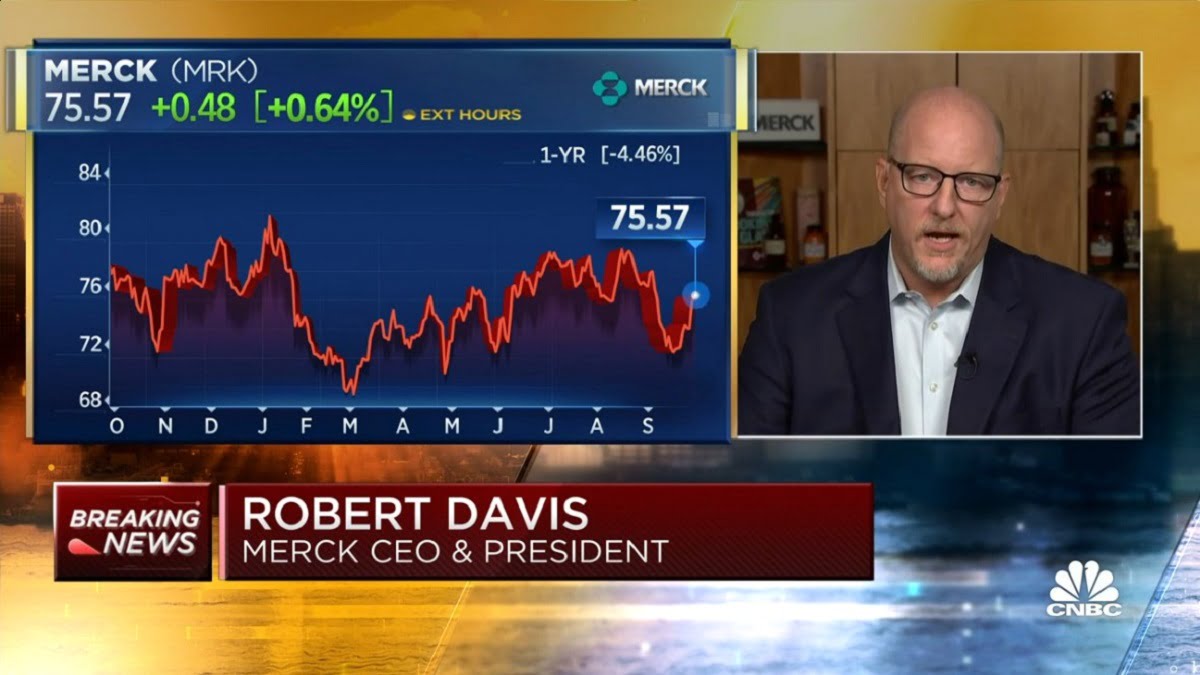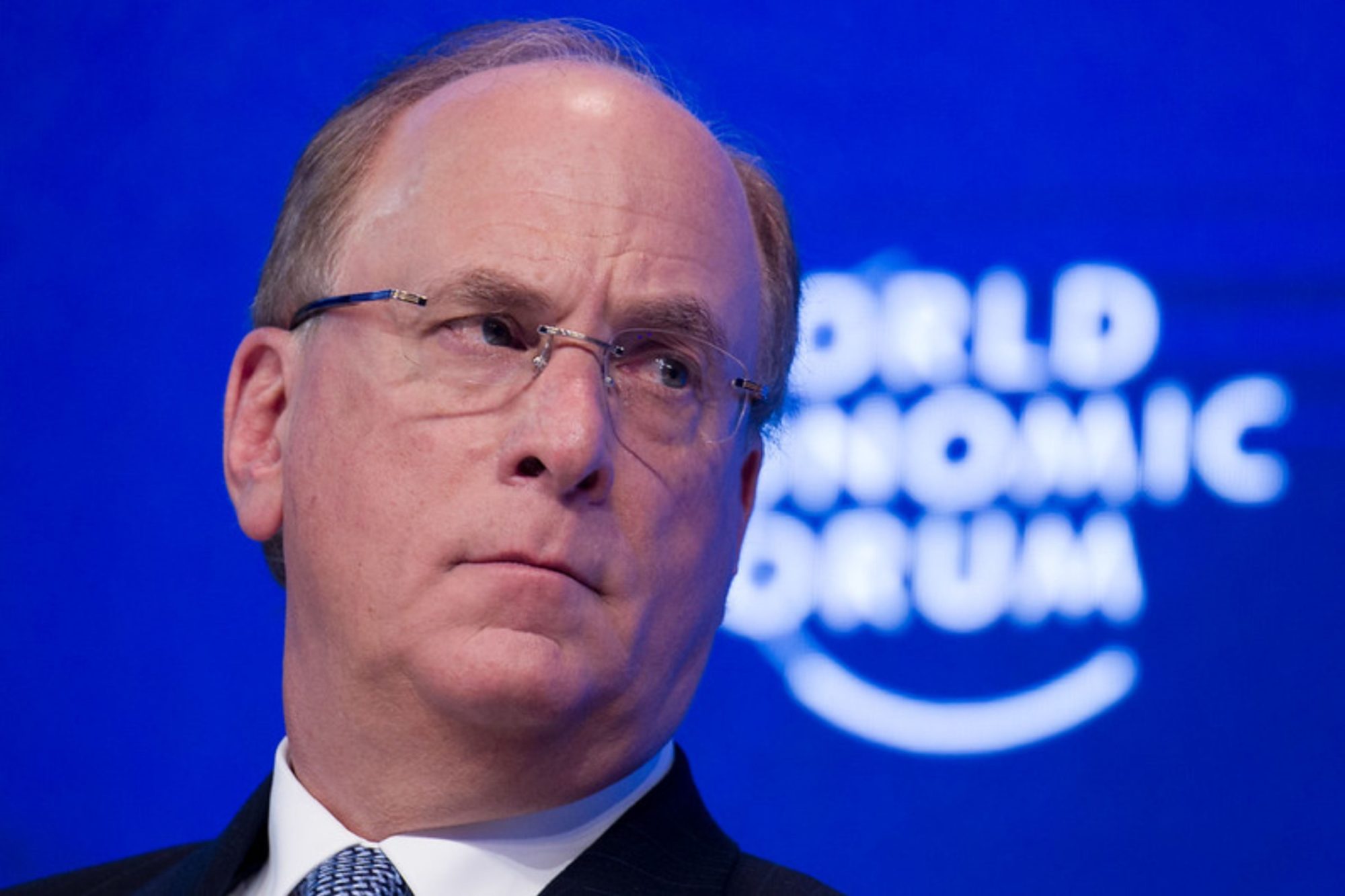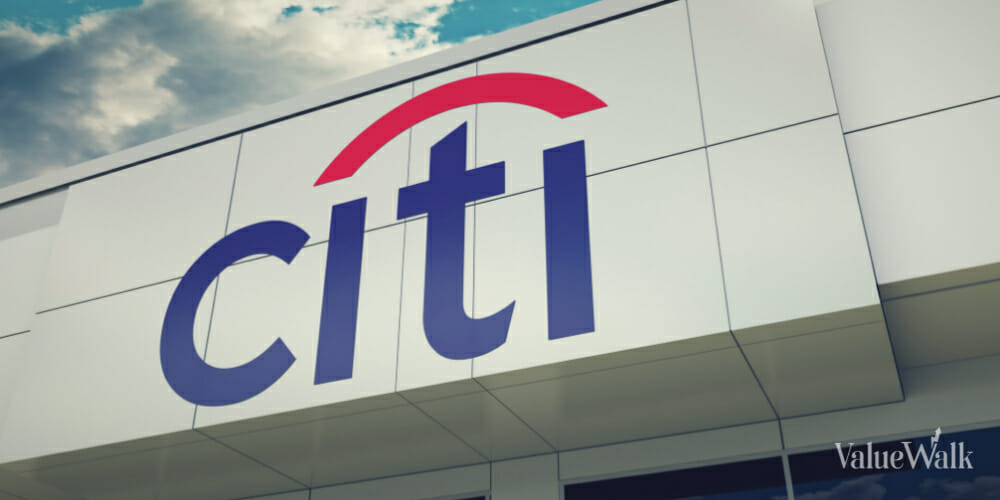Following is the unofficial transcript of a CNBC interview with Merck President & CEO Robert Davis on CNBC’s “Squawk Box” (M-F, 6AM-9AM ET) today, Thursday, September 30th. Following is a link to video on CNBC.com:
Q2 2021 hedge fund letters, conferences and more
Merck CEO Davis Provides Update On Highly Anticipated Covid-19 Pill
MEG TIRRELL: Rob Davis joins us now, the new CEO of Merck & Co., Inc. (NYSE:MRK). Rob, thanks so much for being with us this morning, your first interview. We're excited to have you. Tell us about this deal, $11.5 billion for Acceleron Pharma Inc (NASDAQ:XLRN). What does it signal about your strategy for Merck going forward?
ROBERT DAVIS: Great. Well first of all Meg, thank you so much for having me on. It's an exciting day for the company and frankly, it's an exciting day for patients with pulmonary arterial hypertension, this is a devastating disease. You know, you look at it at seven years, patients still have 50% mortality. So first and foremost, we're so excited to be able to now join with Acceleron and really help deliver for these patients that still have such an important unmet need, but if you look at this why we're so excited about this, this really fits perfectly into our strategy. You know we have long been a science based, science driven company. Acceleron is very similar to that and, and obviously what we see here is the opportunity to get a potential first in class foundational asset in what is still such an important area of, of medicine so we're excited about the deal. It broadens and diversifies our pipeline but, more importantly, it really complements our growing cardiovascular pipeline in many ways, returns us to our roots and our legacy where we've really had deep expertise in cardiovascular care for, for many years.
TIRRELL: And I know one of the things that folks are so excited about, about this drug is that it could potentially be the first disease modifying drug for pulmonary arterial hypertension. There's been a lot of drugs in this space, but they really haven't been able to really solve the problem that much. How much are you expecting to see an impact from this drug on this disease?
DAVIS: Well, as you say that that's really why we see this as really has the potential to be truly foundational because it is a drug with potential to be disease modifying. It's the first a non-basal dilator in the space so it's a new mechanism of action, and it's an add on therapy obviously this is a disease that if you have it, you progress fairly quickly through a whole host of different regimens, most of which are basil dilators. This is an opportunity to add on to that with a really unique mechanism that we think can profoundly improve the quality of life for these patients and really fundamentally change the course of this and potentially as you mentioned with the disease modifying potential characteristics of the drug, even then go into broader indications beyond just PAH.
TIRRELL: We know Acceleron had a partnership with Bristol Myers. What can you tell us about the process of coming to this deal? Was, was it competitive? Were you kind of duking it out with anybody else?
DAVIS: Yeah, well, I can't speak for, for Acceleron and the conversations that they've had but I can tell you this is a company we've been watching for quite some time. As you may know, our chief scientist, Dr. Dinah Lee, is actually a cardiologist by training has deep expertise in this area and we have a whole team here at Merck, who have been also very focused on this so this is something that we've been watching. And when they put out very positive Phase 2 data earlier this year in June, you know, we, we got excited about the opportunity of what this could be, and started having conversations so we feel good about the process, good about the value we're giving here and really think we're going to create value for patients. And importantly, both for the Merck shareholders and for the Acceleron shareholders as well so it's a, it's a win win all the way around.
TIRRELL: And what do we expect from Merck in terms of future potential M&A? Do you have more plans to buy more and should we be looking at potential targets like this where there's a Phase 3 asset or are you looking potentially earlier in the pipeline?
DAVIS: Yeah, so if you look at our BD strategy overall this is an important step, but it's not the only step so we do fully expect to continue to look to augment what we see as an exciting internal pipeline with great science externally. And what this deal gives you an example of, which I think you can look at to really how we're thinking about our strategy, is it starts first with do we see an area where there's really compelling science and as I mentioned, we see a foundational therapy here with Sotatercept. So this is an area where we see great science, we think we can bring value to that and even take it further than, then what it would go on its own so it's an area where we can build upon it, but importantly it adds to our own portfolio and pipeline. It diversifies it, which is important so we're science driven but we are portfolio informed, and as I mentioned, in this particular case, it is so nicely complements what we have in a growing cardiovascular space so while obviously, we continue to be extremely excited about the opportunity to have impact on patients with cancer, with our, our lead drug KEYTRUDA, we are equally excited to broaden into other areas of science and bring that same type of focus and expertise which has allowed us really to change the lives of so many people battling cancer, bring that same focus and attention to other disease areas. And we're going to do that through our pipeline and we're going to do that through continued business development.
TIRRELL: Well, of course, one area of your pipeline that the entire world is watching right now is your COVID-19 drug that you're partnered on with Ridgeback Bio, Molnupiravir, which I think we're expecting Phase Three results on maybe within a few weeks, I think you guys had said maybe October for those results. What can you tell us about that timing and how optimistic you are that this would be potentially the first pill for COVID?
DAVIS: Yeah. Well, if you look at what we have with Molnupiravir, which is the, the drug you're referring to, it's an antiviral, the primary completion date for our studies is the beginning of November. We do have potentially the opportunity for an interim look at the data before that and, and with that then the potential for potentially looking at an emergency use authorization before the end of the year. But I can tell you what the enrollment for that study continues to go quite well. We're very excited about this and obviously given the ongoing impact that the pandemic is having and the fact that despite being at this, you know, year and a half, we still have so many people who are struggling with COVID-19. We're excited to hopefully bring another regimen into the armamentarium to really go after this and, you know, more to come. We need to see the data, but I can tell you we're excited and very hopeful for what this can mean for, for the world frankly because this is such a devastating situation we're facing with COVID-19.
TIRRELL: And obviously the Phase 3 data will be the what tells us how well this drug works for COVID, but can you level set for us based on what you've seen from the previous data as much as you can, should we be thinking about this like potentially a Tamiflu, which is helpful but not a cure all for the flu, but it's helpful and it's the only thing we've got for the flu, or do you expect that this could potentially be way more helpful than that, that you could take it as soon as you get a diagnosis with COVID at home, five days or however long you have to take it and you're cured.
DAVIS: Yeah, so what this drug does is it is as you said, if you have, if you are identified through testing as someone who is positive for COVID-19 or begins to show symptoms, this is a pill you would take and what we believe it will do is significantly improve and reduce the chance that you ultimately will be hospitalized and face serious infection so it is something where we think if we can give it early in the course of the disease, it can really take it from being the devastating disease of COVID-19 is to something that's, that's manageable, and that's so important. Because it's a pill, it's something that obviously is, it can be quite accessible to the general population so we're excited about this because I do think it can really change the way think, people will think about COVID-19 if they're unfortunate enough to be facing it themselves. So it's something that we need to get this data, and we're working as urgently as we can because we know the need is great.
JOE KERNEN: Rob, it's Joe Kernen. It's great to have you on, seriously, and we hope we can do this, do this a lot. I'm just wondering is this, this deal in the structure and where you went for talent, is that a blueprint do you think for what Merck’s going to use again and again? Is your in house R&D it, I mean I'm sure you spend lots of money and that's great but do you find things at Ridgeback or find things at Acceleron or find incubators out in, in sort of opening stage companies in biotechnology. Is that where you're going to find a lot of what you do in the future you're going to do this again and again or does your in house research provide what you need to develop new drugs?
DAVIS: Sure no, well, I think it's important to understand the way we think about it. We think about our pipeline as one pipeline made up of both what we have internally which we continue to believe we have a growing and strong internal pipeline, both in oncology and outside of oncology, but, you know, the best science is found wherever you can get it so we do not believe it's only within the walls of Merck and in fact, we look to augment whatever we have internally with the best science we can find externally. So you will see us both continue to prosecute importantly our own discovery efforts, but then add to those through deals like what you've seen us do with Ridgeback, what we're doing here with Acceleron, because in addition to discovery, we also think a really important capability of ours is the ability to take a drug and then take it to the development phrase and commercialize it which is also a key strength I think we've demonstrated that with, with KEYTRUDA, and we're going to bring that same muscle, that same capability to this situation with Sotatercept, and then hopefully to other opportunities we find down the road, both inside and outside of the company.
TIRRELL: Alright Rob Davis, we appreciate you being with us this morning. Big news and we look forward to getting to talk with you more as a lot of this news will continue to come out over the coming months. Thanks Rob.
DAVIS: Great, well thank you very much for having me. It's been, it's been a privilege.













